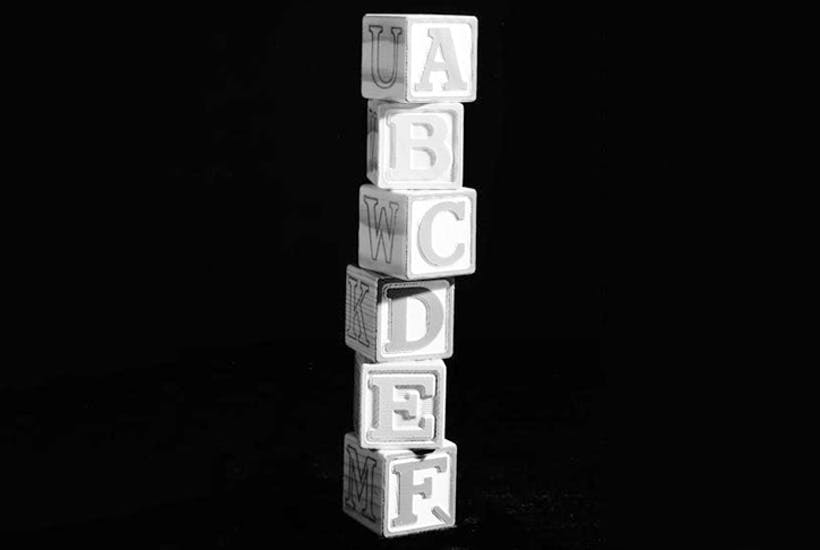In the middle of the last century, Robert Collison, one of the founders of the Society of Indexers, addressed himself to the question of what, exactly, an index is. In Collison’s loosest formulation, every time we organise the world around us so that we know where to find things, we are in fact indexing. He offers a pair of illustrations that could hardly be more 1950s if they were wearing brothel creepers:
When a housewife makes a separate place for everything in the kitchen she is in fact creating a living index, for not only she, but all her household, will gradually get used to the system she has created and be able to discover things for themselves… A man will get into the habit of always putting change in one pocket, keys in another, cigarette-case in a third — an elementary indexing habit which stands him in good stead when he checks up in his hurry to the station to see whether he has remembered his season-ticket.
Google’s parent company has become Alphabet – what took it so long?
A mental index: that’s how women find the sugar and men find their cigarette-cases.
This works smoothly enough up to a point. But what if a stranger needs to lay the table one day; or what if the system is larger than the ones in either of those two examples, if it runs to hundreds of items, all more or less the same in appearance? What if, to take another room in the house, it is the library rather than the kitchen that we need to navigate, in a hurry, without prior knowledge? This was the problem faced in Egypt, round about 300 bc, when the collection of the Library of Alexandria, under the aggressive acquisitions policy of the pharaoh, Ptolemy II, grew to several hundred thousand scrolls. It was here that some bright spark suggested that the order of the letters of the alphabet might offer a solution.
Judith Flanders’s A Place for Everything presents itself as a history of alphabetical order, but in fact it is more than that. Rather, as the title suggests, it offers something like a general history of the various ways humans have sorted and filed the world around them — a Collison-level view of the matter, in which alphabetical order is just one system among many. After all, in certain eras, the alphabet has not enjoyed an uncritical ride as the ordering of choice. The medieval mind, for example, trained to categorise, to look for God’s pattern in the world, was suspicious of its arbitrariness. The Romans, meanwhile, ran their vast and officious empire with little need for it. And at Harvard, Yale, and elsewhere, graduating students were listed in order of their family’s social status until the late 1800s.
But alphabetical order, as well as being the great leveller, offers an irresistibly handy way to organise things. Everybody knows it, for one thing. It’s the first thing we learn when we learn to read. (Robert Cawdrey, in his dictionary of 1604, seems doubtful whether this is the case, warning in the preface: ‘If thou be desirous (gentle Reader) rightly and readily to understand, and to profit by this Table, then thou must learne the Alphabet, to wit, the order of the Letters as they stand, perfectly without booke.’ It is hard to imagine the gentle reader for whom this might have posed a problem.)
Flanders leads us through library catalogues and encyclopedias, the Dewey Decimal System and the phone directory (an elegantly layered, complex classification system: by area, by trade vs residential, by profession, and finally by alpha order). Along the way, we learn that at one point as many as 10 per cent of all listings in the US phonebook were known to be incorrect — ‘something in the region of 50 million wrong numbers annually’; that the word ‘file’ comes from the Latin filum (string), since related documents would be pierced and strung together; that Wikipedia’s servers were originally named after history’s great classifiers: Linnaeus, Alsted, Isidore of Seville.
This latter detail reminds us of another instance of the tech world burnishing its pre-digital credentials. In 2015, Google’s Larry Page announced in a blogpost that the company he had founded had grown baggy through acquisitions and its own developments. A restructuring was necessary, unbundling each of these different interests. Google itself would be slimmed down — it would become a sibling rather than a parent, a wholly owned subsidiary of a newly created umbrella company. The umbrella company would have a new name, something more basic, less of a tech student in-joke than before. Henceforth, Google, the great indexer of the modern world, would become Alphabet. Somewhere by the Nile, if you listened very carefully, you might have heard a snort, an ancient librarian grumbling in ancient Greek, ‘What took you so long?’






Comments